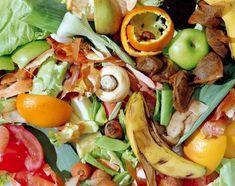
Fresh produce foodservice specialist Reynolds is among a group of 73 suppliers, hotels, pubs, restaurants, industry bodies and government departments to have signed up to the Hospitality & Foodservice Agreement on waste reduction, launched in the past week by the Waste & Resources Action Programme (WRAP).
Household names such as Domino’s Pizza, Greene King, Greggs and McDonald’s join Reynolds and its customers Café Spice Namasté, Compass, Houses of Parliament, Jurys Inns and QHotels in signing the voluntary agreement.
Ian Booth, technical director at Reynolds, said: “Reynolds is pleased to have been involved in the voluntary agreement since the first discussions with the industry. We recognise that as a key supplier to the foodservice industry, we have a responsibility to continue to reduce our environmental impact. The initiatives within the agreement link directly to our waste minimisation strategies, which form part of our ongoing ISO14001 certification.”
The agreement aims to cut food and associated packaging waste by five per cent to deliver a carbon reduction of 234,000 tonnes, the equivalent of approximately 100 million meals. It also aims to increase the overall rate of food and packaging waste that is being recycled, sent to anaerobic digestion or composted to 70 per cent.
The deal has been developed by industry with government and regional executives in Scotland, Wales and Northern Ireland building on WRAP’s research, and work already being undertaken by the sector to tackle waste. It will be overseen by a steering group, which will include signatories and supporters. The group will have responsibility for providing input to voluntary agreement strategy, reviewing progress on delivery against the targets, and sharing good practice.
Lord Taylor, DEFRA minister for environment, said: “This new agreement shows these household names are committed to stopping this terrible waste of food. By taking additional steps to reduce the amount of food waste, these businesses and organisations will stop the equivalent of 100 million wasted meals going to the bin and save themselves money - a win-win for everyone.”